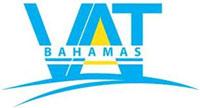 The Inter-American Development Bank has released an executive summary presenting the key results of the first comprehensive survey of employers and employment.
The Inter-American Development Bank has released an executive summary presenting the key results of the first comprehensive survey of employers and employment.
The Wage and Productivity Survey 2012 was conducted by the Department of Statistics of The Bahamas with the financial and technical support of the Inter-American Development Bank’s Labor Markets Unit. It is part of the Labour Market Study that the Inter- American Development Bank is conducting for The Bahamas
The survey report aims to provide insight into our employment challenges by examining: the demand for skills, difficulties in hiring, training needs and training practices of firms.
The survey also includes a comprehensive set of related labour market topics such as productivity, firms’ characteristics, use of technology and introduction of innovations.
A key conclusion from the survey is that investment in skills development of the current and future labour force can be a main driver of economic and social growth in The Bahamas. The survey demonstrates that upgrading both technical and soft skills is key to increasing productivity and competitiveness, adaptation to new technologies, and creating stable work opportunities for Bahamian workers.
The main findings show that:
* Skill levels were cited as the principal criteria for hiring, even more important than experience or formal education.
* Bahamian employers value skills when recruiting in this order: 1) Specific skills; 2) Soft skills; 3) Numeracy and Literacy skills.
* When asked about recruiting difficulties, most employers point that the lack of skills is the main difficulty in recruiting new employees, and is the main reason for dismissals, with behavior issues being the primary reason for dismissal.
* Skills gaps are perceived as a major barrier to productivity, following import duties/ high costs.
* Almost half of the employers did invest in training in the past two years, but not to the level they think is needed.
* Despite numerous public and private training organizations, most firms principally rely on internal trainers for training which demonstrates the use of training directly adapted to firm need.
* The main areas for improving skills are: production, soft skills, and computing
The survey breaks down responses by sectors. Conclusions are also based upon discussions IDB had with major stakeholders, including the largest employers, the Bahamas Hotel and Tourism Association, the Bahamas Chamber of Commerce and Employers Confederation and relevant public sector areas.
Download a copy of the survey report’s Executive Summary



